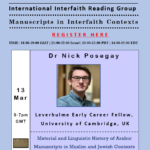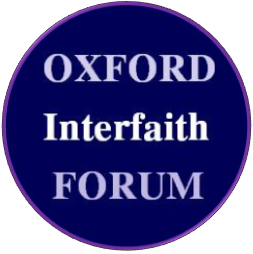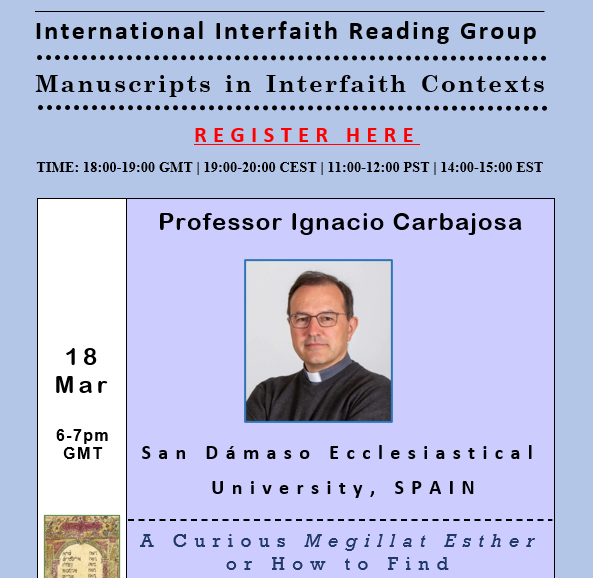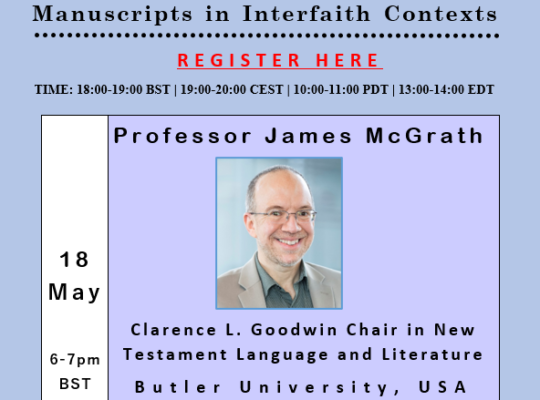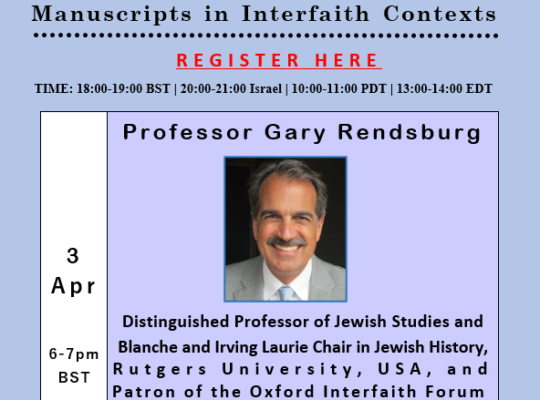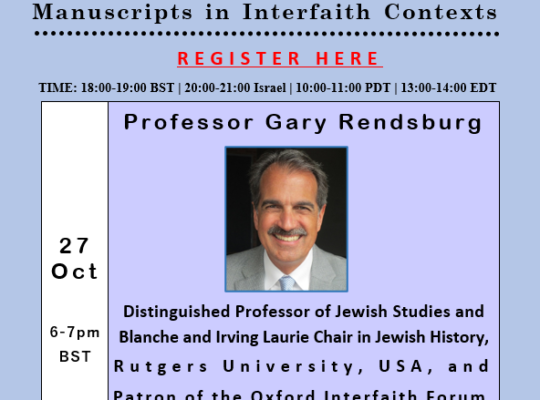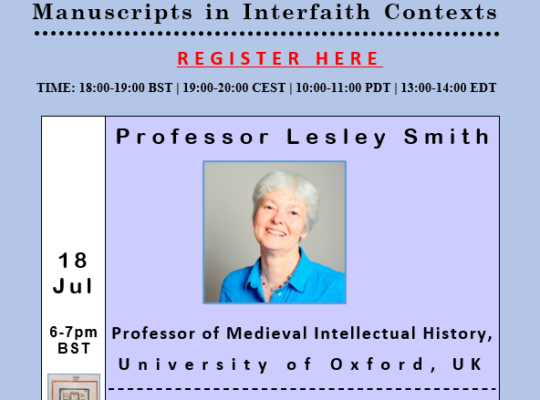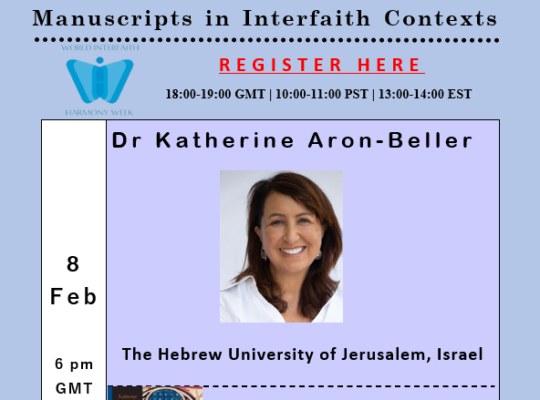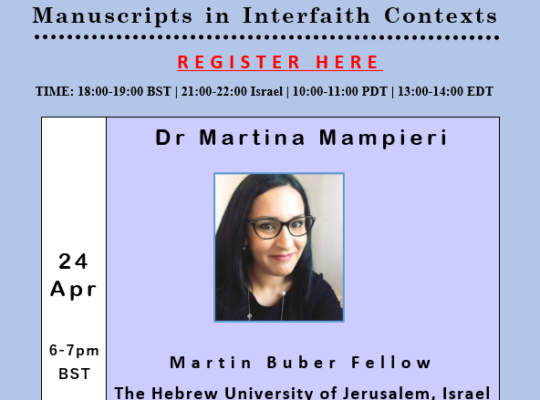18 March, 2024
We are deeply honoured to welcome Reverend Professor Ignacio Carbajosa, a Professor of Old Testament and Semitic Languages at the San Dámaso University in Madrid, to lead a session of the International Interfaith Reading Group on Manuscripts in Interfaith Contexts.
Here are the details of this fascinating session.
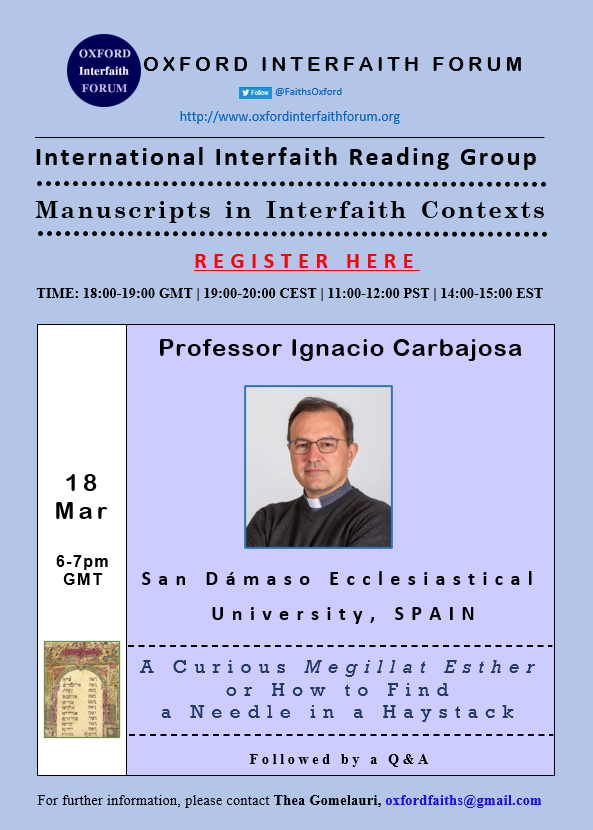
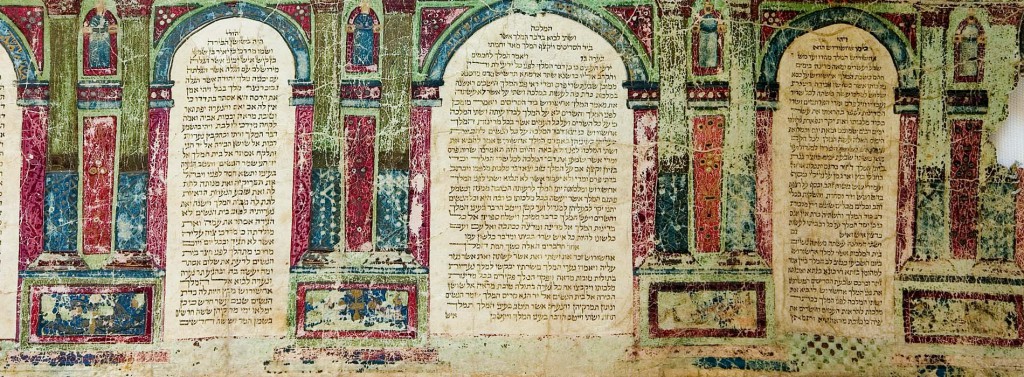
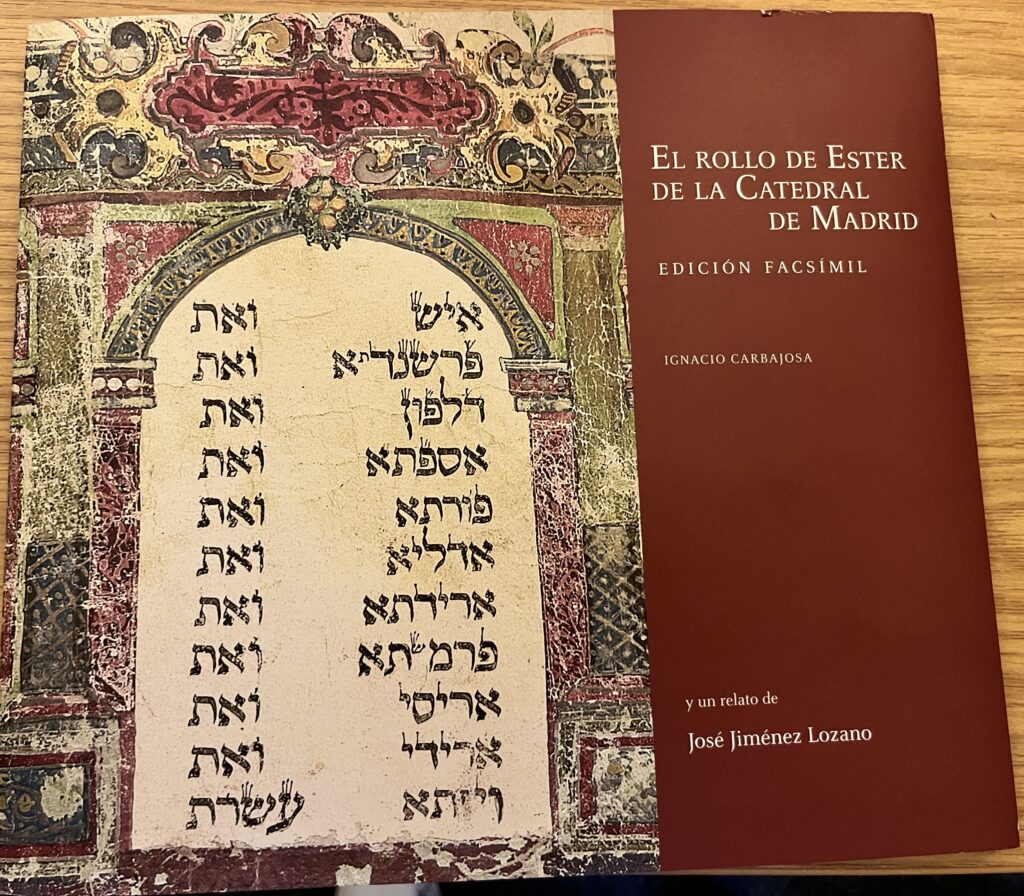
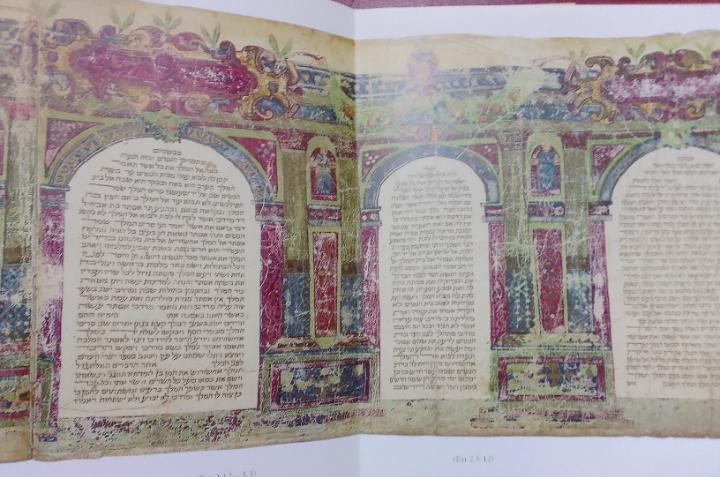
Topic: A Curious Megillat Esther or How to Find a Needle in a Haystack
Abstract: The Cathedral of Our Lady of Almudena, in Madrid, preserves the legacy of the priest and scholar José Fernández Montaña (1842-1936). Part of this legacy is a synagogue scroll, which only came to light in the spring of 2010. This is a scroll of the Book of Esther, written in Hebrew and beautifully illuminated, which could date from around the end of the 16th or the first half of the 17th centuries CE. A peculiarity of this scroll is the signs (like the circellus masoreticus followed by two dots in a horizontal line), unique in the whole manuscript, that are found over four consonants, located in four words in a row. These supralinear markings must be related to one of the characteristics of the Book of Esther itself which distinguishes it from the rest of the books of the Hebrew Bible: it does not contain the divine name. Some commentators, especially starting in the Middle Ages, looked for hidden references to the divine name in this book. That tradition has been preserved in the Megillat Esther of Madrid Cathedral.
Speaker: Reverend Professor Ignacio Carbajosa, a Professor of Old Testament and Semitic Languages at the San Dámaso University in Madrid, Spain.
Speaker’s biography: Reverend Professor Ignacio Carbajosa was born in 1967 in Cartagena, Spain. He was ordained a Catholic priest in 1997 for the Archdioceses of Madrid. He completed his PhD at the Pontifical Biblical Institute (Rome, 2005) with a dissertation entitled The Character of the Syriac Version of Psalms. A Study of Psalms 90-150 in the Peshitta (Leiden: Brill, 2008). He is a Full Professor of the Old Testament at San Dámaso University (Madrid).
Professor Carbajosa’s main field of research is Textual Criticism and Ancient Versions of the Hebrew Bible, especially Syriac versions. He has been the area editor of Syriac Translations for The Textual History of the Bible vol. 1A-C (General editors Armin Lange and Emanuel Tov; Leiden: Brill, 2016-2017), and currently is the editor area of Syriac Biblical Manuscripts for the Handbook of Biblical Manuscripts inside the series Textual History of the Bible Handbooks (Brill).
Professor Carbajosa has been the chief editor of the Journal Estudios Bíblicos from 2007 to 2021. He is member of the Editorial Board of the Journal Textus, a Journal on Textual Criticism and of the Journal Vetus Testamentum, and member of the Editorial Board of the series Monographs of the Peshitta Institute (Brill), Textual History of the Bible Handbooks (Brill), Supplements to the Textual History of the Bible (Brill) and Eric Voegelin Studies: Supplements (Brill – Fink).
Professor Carbajosa has written a Commentary on the book of Psalms (in Spanish, first volume 2018, second volume 2023). Among his books in English, the following stand out: Hebraica veritas versus Septuaginta auctoritatem. Does a Canonical Text of the Old Testament Exist? (Wipf & Stock, 2023); Faith: the Fount of Exegesis. The Interpretation of Scripture in Light of the History of Research on the Old Testament (San Francisco: Ignatius Press, 2013); The Character of the Syriac Version of Psalms. A Study of Psalms 90-150 in the Peshitta (Leiden: Brill, 2008).
Professor Carbajosa has been a Visiting Scholar at the Catholic University of America, Oxford University and Harvard University.
Chair: Professor Alison Salvesen, Professor of Early Judaism and Christianity at the Faculty of Asian and Middle Eastern Studies, University of Oxford.
Date: 18 March, 2024
Time: 18:00-19:00 GMT| 19:00-20:00 CEST | 11:00-12:00 PST | 14:00-15:00 EST
Venue: Online
If you would like to join the International Interfaith Reading Group on Manuscripts in Interfaith Contexts please, register HERE.
Related Sessions
- The Dead Sea Scrolls and Jewish-Christian Dialogue
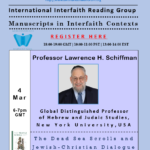
- The Manuscript Project at the Coptic Monastery of St Paul the Hermit at the Red Sea, Egypt
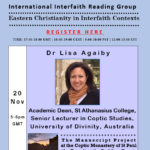
- The Greatest Medieval Masoretic Pentateuch: The Lailashi Codex—the Crown of Georgian Jewry
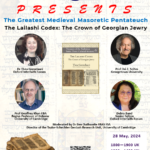
- A Curious Megillat Esther or How to Find a Needle in a Haystack
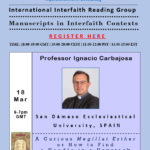
- Christian Images and Jewish Desecrators: The History of the Allegation in Manuscript Illustrations
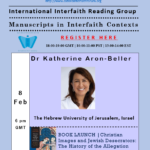
- A Book for All Seasons: Medieval Liturgical Psalter
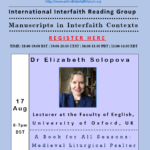
- Mandaeans: A Minority on the Move and their Manuscripts
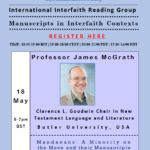
- The Passover Haggadah through the Ages: Jewish Text, Christian Surprises
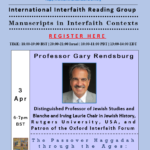
- The Dead Sea Scrolls at 75: The Texts, Their Contexts, and the Coalescence of Jewish and Christian Scholarship
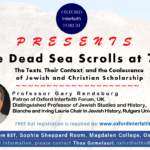
- The Popes and the Jews in Sixteenth-Century Italy through the Chronicle of Pope Paul IV
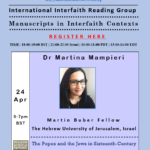
- British Library Hebrew Treasures Reveal Interfaith Narratives: The Sana’a Pentateuch

- A Medieval Franciscan Consults the Jews: Nicholas of Lyra on how to Imagine the Temple
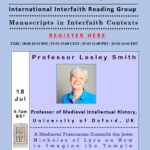
- The Kennicott Bible: The Greatest Bible Ever Written
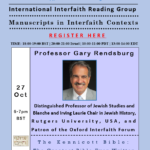
- Serendipitous Manuscripts: Karma Pakshi’s Memoirs, Past Lives, and Poetry
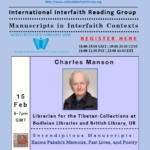
- Material and Linguistic History of Arabic Manuscripts in Muslim and Jewish Contexts
